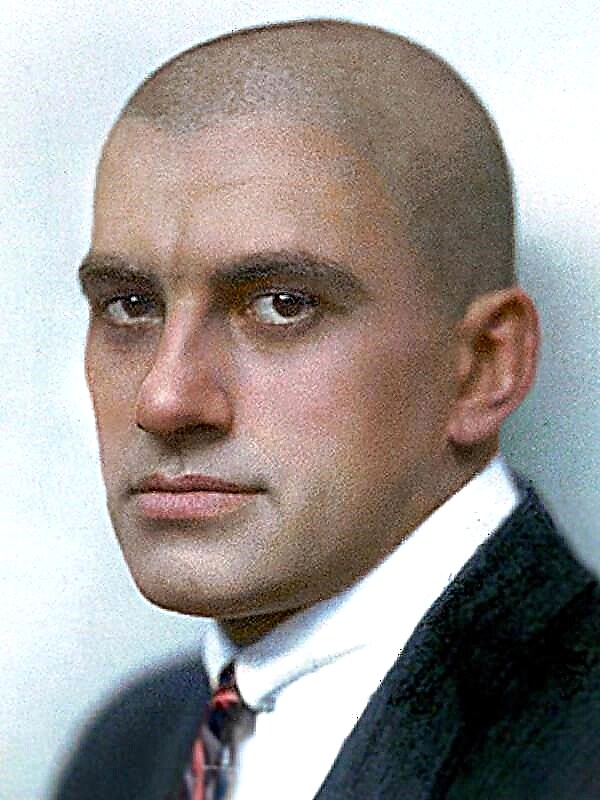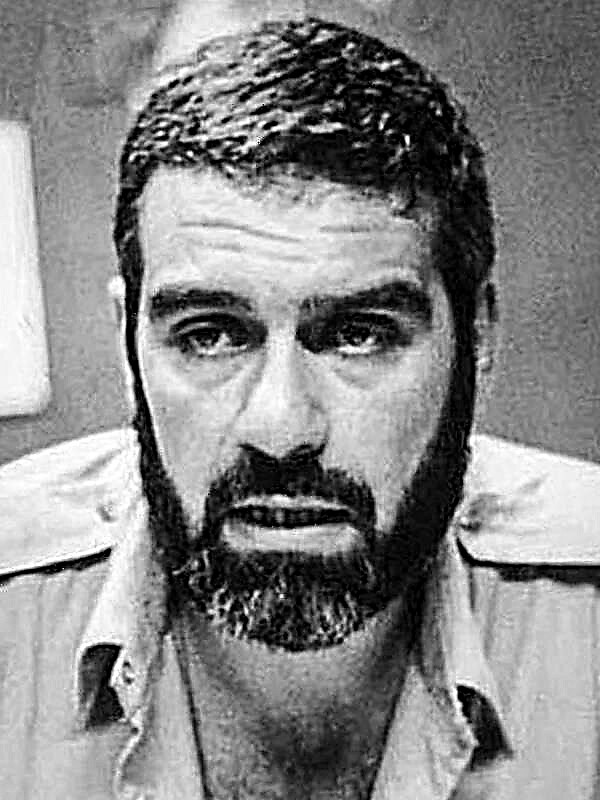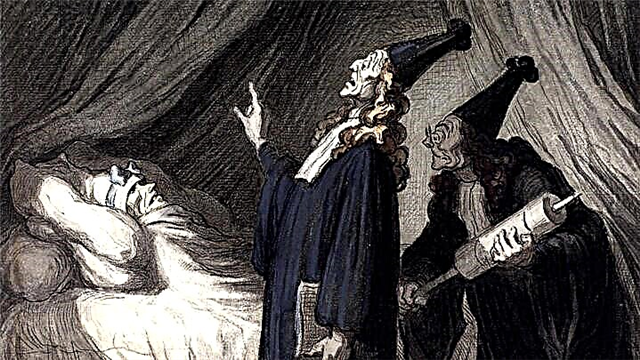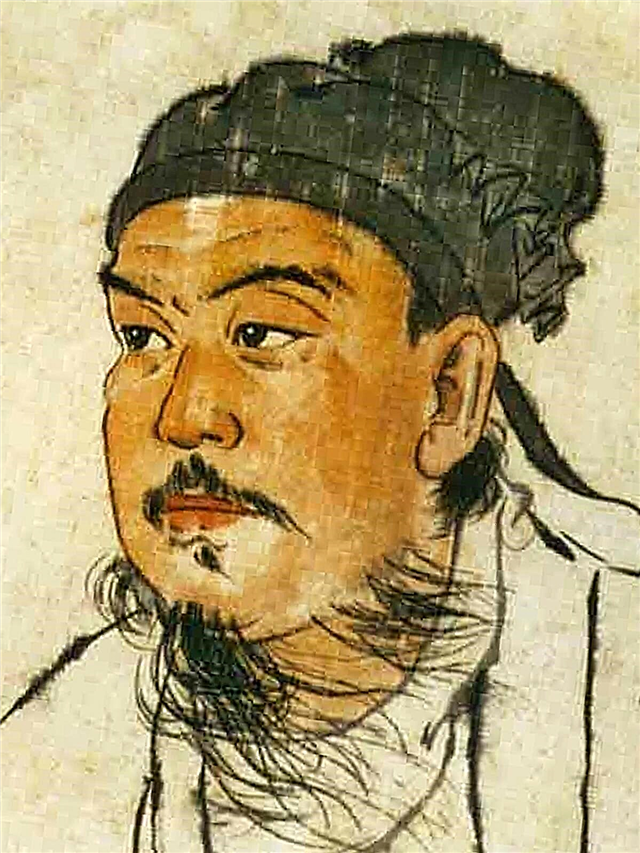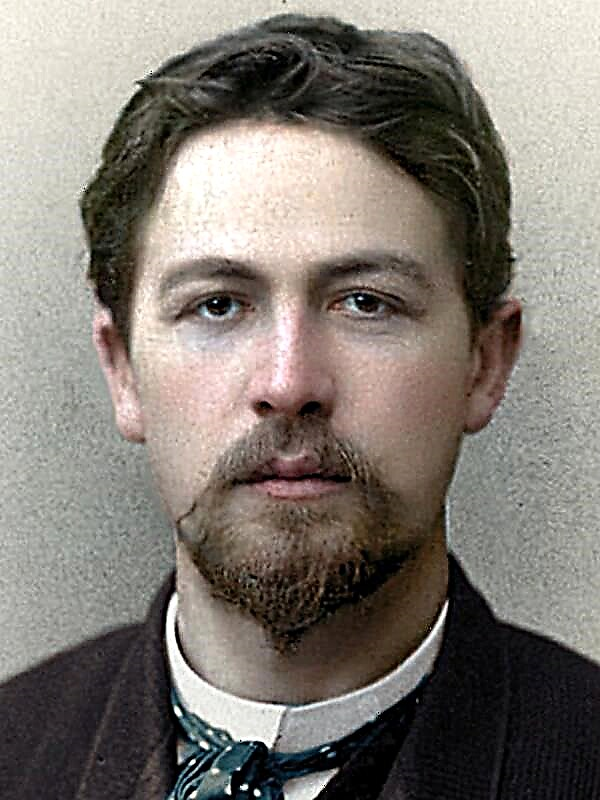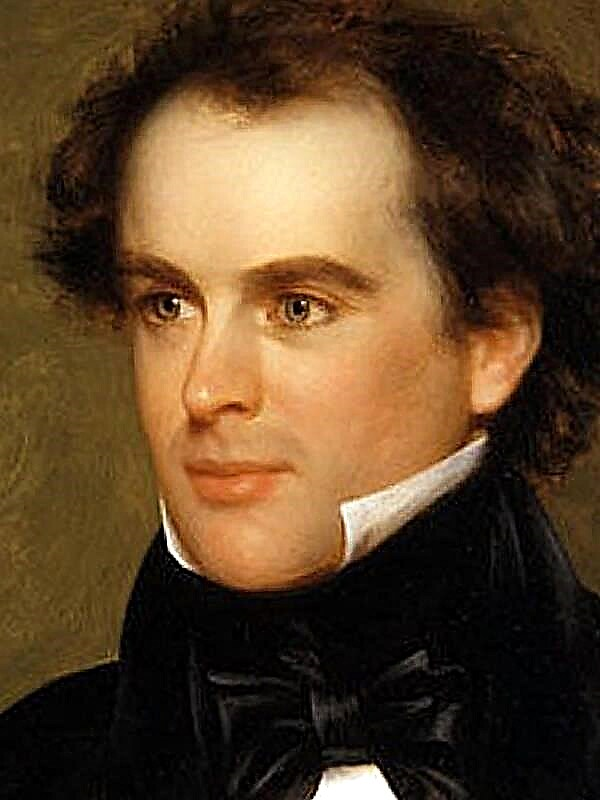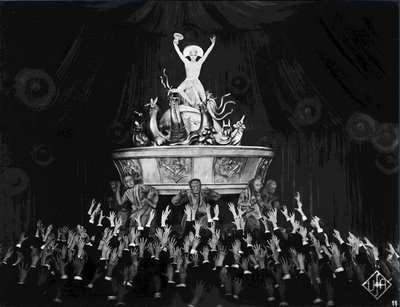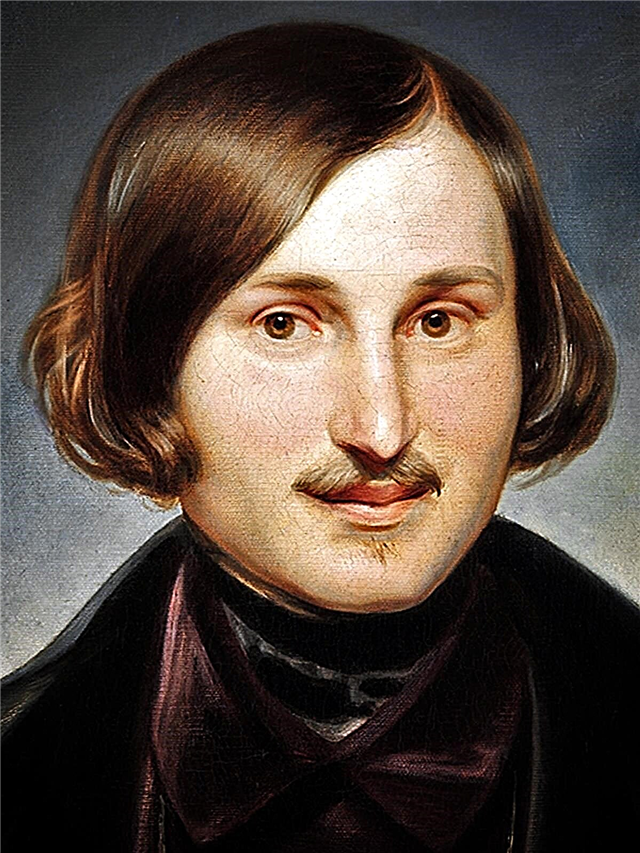Every evening in the winter of 1912, the narrator visits the same apartment opposite the Cathedral of Christ the Savior. There lives a woman whom he madly loves. The narrator takes her to chic restaurants, gives books, chocolate and fresh flowers, but does not know how it will end. She does not want to talk about the future. There was no real, last closeness between them, and this keeps the narrator “in insoluble tension, in painful expectation”. Despite this, he is happy next to her.
She studies at historical courses and lives alone - her father, a widow of an enlightened merchant, settled "alone in Tver." She takes all the gifts of the storyteller carelessly and absently.
It seemed like she needed nothing: no flowers, no books, no dinners, no theaters, no dinners in the country.
She has favorite flowers, she reads books, eats chocolate and eats with great pleasure, but her only real weakness is “good clothes, velvet, silk, expensive fur”.
Both the narrator and his beloved are young and very beautiful. The narrator is like an Italian, bright and agile. She is dark and black-eyed like a Persian. He is “prone to talkativeness and simple-hearted gaiety,” she is always restrained and silent.
The narrator often recalls how they met at a lecture by Andrei Bely. The writer did not give a lecture, but sang it, running around the stage.The narrator “spun and laughed so much” that he attracted the attention of the girl sitting in the next chair, and she laughed with him.
Sometimes she silently, but not opposing, allows the narrator to kiss "her arms, legs, body amazing in its smoothness." Feeling that he can no longer control himself, she pulls away and leaves. She says she is unsuitable for marriage, and the narrator no longer talks to her about it.
Our incomplete proximity sometimes seemed unbearable, but even here - what was left for me, except for hope for a while?
The fact that he looks at her, accompanies to restaurants and theaters, makes for the narrator torment and happiness.
So the narrator spends January and February. Comes Pancake week. On Forgiveness Sunday, she orders to call her earlier than usual. They go to the Novodevichy Convent. On the way, she says that yesterday morning she was at the schismatic cemetery, where the archbishop was buried, and recalls the whole rite with enthusiasm. The narrator is surprised - until now he has not noticed that she is so religious.
They come to the cemetery of the Novodevichy Convent and walk for a long time between the graves. The narrator looks at her adoringly. She notices this and sincerely wonders: he really loves her so much! In the evening they eat pancakes in the Okhotny Ryad tavern, she again with admiration tells him about the monasteries she managed to see, and threatens to leave for the most deaf of them. The narrator does not take her words seriously.
The next evening, she asks the narrator to take her to the theatrical skit, although she considers such gatherings to be extremely vulgar.She drinks champagne all evening, looks at the antics of the actors, and then famously dances polka with one of them.
Late at night, the narrator brings her home. To his surprise, she asks to let the coachman go and go up to her apartment - before, she did not allow this. They are finally drawing together. In the morning she tells the storyteller that she is leaving for Tver, promises to write and asks to leave her now.
The narrator receives the letter in two weeks. She says goodbye to him and asks not to wait and not to look for her.
I won’t return to Moscow, so far I will go to obedience, then maybe I will decide to tonsure ... May God give me strength not to answer me - it’s useless to prolong and increase our flour ...
The narrator fulfills her request. He begins to disappear through the dirtiest taverns, gradually losing his human appearance, then for a long time, indifferently and hopelessly comes to his senses.
It takes two years. On New Year's Eve, the teller with tears in his eyes repeats the path that he once traveled with his beloved on Forgiving Sunday. Then he stops at the Martha-Mariinsky monastery and wants to enter. The janitor does not let the narrator: inside there is a service for the Grand Duchess and Grand Duke. The narrator nevertheless enters, having thrust a ruble into the janitor.
In the courtyard of the monastery, the narrator sees a religious procession. The Grand Duchess leads it, followed by a string of singing nuns or sisters with candles near pale faces. One of the sisters suddenly raises black eyes and looks directly at the narrator, as if sensing his presence in the dark. The narrator turns and quietly leaves the gate.

